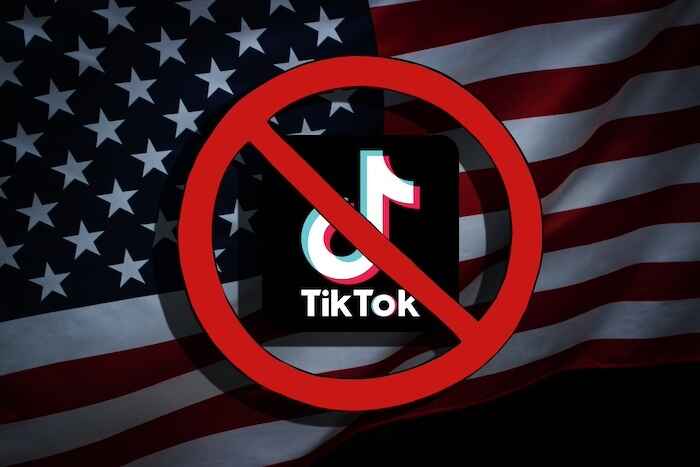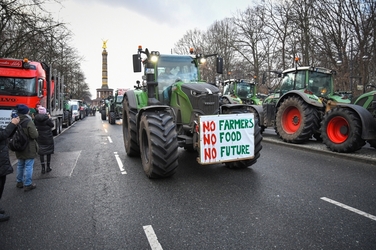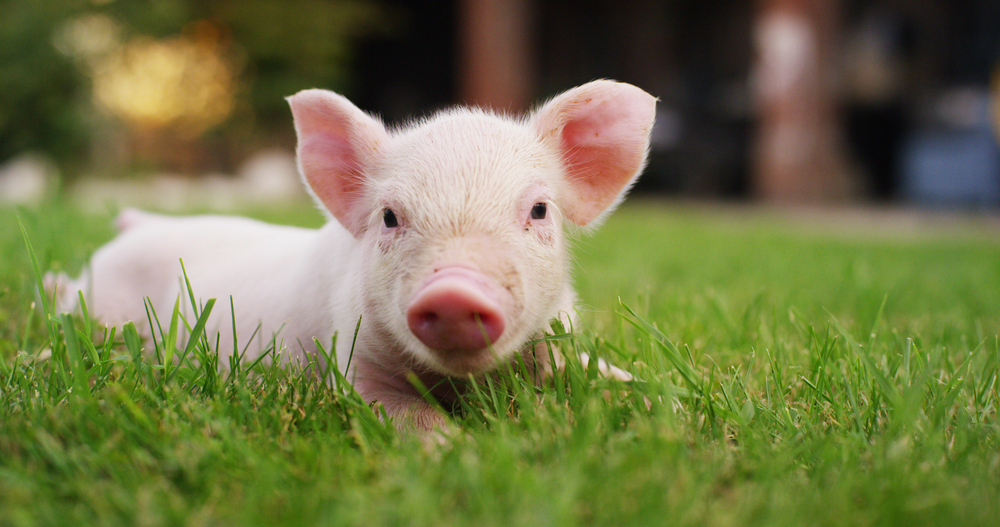A Simple Investment That Powers the Free Market
Joel Salatin|June 9, 2021

Editor’s Note: Freedom of choice is a hallmark of a free market society. But only with the right information can we make the best decisions for our money and our lives. And as Joel Salatin writes, that’s painfully clear in the “healthy” food space. Read on for his simple advice on how to make sure you’re fully informed on decisions that affect your wallet… and your health.
In a free market society, consumers have the freedom to choose how to spend their money. Their actions help shape what’s available… what’s in demand… and what goes away.
But sometimes their choices aren’t so clear… and can be swayed by a lack of knowledge.
That’s especially true in the food space.
The Achilles’ heel of “know your farmer, know your food” advocates is the difficulty of vetting where something came from.
Isn’t it interesting that the default position for this problem is shopping at the supermarket?
In other words, since determining authenticity is difficult, folks will just buy from Whole Foods or Walmart.
What item or service other than food do we buy with as little information? Not education, entertainment, investments, clothing or auto repairs. We sleuth around, ask friends and do research on all sorts of things… but generally not food.
So how does a busy consumer vet their food in today’s highly ignorant and disconnected food culture?
It’s actually quite simple to do… and puts the freedom of choice back in the hands of the consumer.
Meet Your Meat
Debt-free guru Dave Ramsey says that we tend to be successful at the things we put time and energy into.
If you invest in researching your food, chances are your food quality – not to mention your quality of health – will rise dramatically.
Certainly the best option is to physically visit farms. This is not as hard as it may sound. I’ve never had any interest in going on a cruise or visiting Disney World, but I’ve walked on hundreds of farms.
Forgo that tourist excursion you’ve been thinking about and visit a farm. Instead of going to the fair, how about checking out your fare?
While iconoclasts like me can advocate physical vetting (and mean it), today’s reality is that most folks check things out on the internet. Websites are now the way businesses present themselves to the world.
While a website can certainly present a false impression, like Monsanto’s does by claiming it is a proponent of sustainable agriculture, I’ve never found one that failed to present the company’s true self if you dig deeper. In pictures or messaging, beliefs and procedures come out.
Show and Tell
For example, ButcherBox is currently the big gorilla in the meat space with its doorstep delivery. People have called me, asking whether it’s a friend of small farmers and integrity food. So I jumped on the website, clicked on the “Sources” tab, and noticed that the background picture on that page is a farm with not one, two or three, but five factory chicken houses.
I needed but 30 seconds to determine that this outfit promotes factory farming, chemicals, animal abuse and everything deplorable about industrial agriculture.
Another example is our area’s Shenandoah Valley Organics. People ask me whether its chicken is the same as ours. So I went to its website and clicked on “Meet our Farmers.” As I scrolled through the pictures, every farmer was standing in front of a massive concentrated animal feeding operation (CAFO).
Sure, they’re smiling, and often mom and dad are holding cute little children. But it’s as obvious as the moon that these are not pastured operations. They’re industrial factory farms fraudulently claiming to be organic.
Sometimes the telltale signs are in the words used. Those of us in the pastured livestock movement have buzzwords we’ve created, just like any other trade organization, to differentiate us from the other guys.
We never use the term “natural,” for example. That now means nothing in the food industry. Anyone who would use it in their messaging clearly does not have a differentiated product. It’s conventional and industrial.
The words authentic pastured livestock operations use are “pastured,” “forage-finished,” “moved daily,” “mobile infrastructure” and “electric fence.” These are the terms and infrastructure that denote a truly ecologically based, non-chemical approach.
The lack of these kinds of words in a company’s messaging is a dead giveaway that the farm is conventional.
The big gorilla in the pastured egg space is Vital Farms. But a look at its website gives away its adulteration: stationary houses with thousands of birds. Folks, chickens don’t walk very far. If you have 5,000 laying hens in a stationary house, either they don’t go out very often or their surrounding is a moonscape. It can’t be both.
Look for distinctives on the website. What’s the farm promoting? What’s the visitation policy? Here at our Polyface Farm, we offer a 24/7/365 unannounced visitor protocol to keep us on our toes and ensure complete transparency.
If you can’t go visit spontaneously, you have to wonder what folks are hiding. We’re talking about food here, not the Manhattan Project.
Sniff Out the Good Stuff
As you do in your other product research, start perusing the websites of food brands you use. You’ll soon develop an investigator’s nose for sniffing out integrity.
Look at the biggest brands. They’ll use the meaningless jargon of health, safety and security – all overworked terms that mean nothing.
For contrast, search for pastured meat, pastured poultry and grass-finished beef and see what kinds of words are used. It’ll look like a different language.
With some practice, you’ll soon be able to find quality sources for your food. And you’ll be able to use the skills you develop to improve all of your spending habits.
And that freedom of choice will be a victory for the free markets.

Joel Salatin
Joel Salatin calls himself a Christian libertarian environmentalist capitalist lunatic farmer. Others who like him call him the most famous farmer in the world, the high priest of the pasture, and the most eclectic thinker from Virginia since Thomas Jefferson. Those who don’t like him call him a bioterrorist, Typhoid Mary, a charlatan, and a starvation advocate. With a room full of debate trophies from high school and college days, 12 published books, and a thriving multigenerational family farm, he draws on a lifetime of food, farming and fantasy to entertain and inspire audiences around the world.





